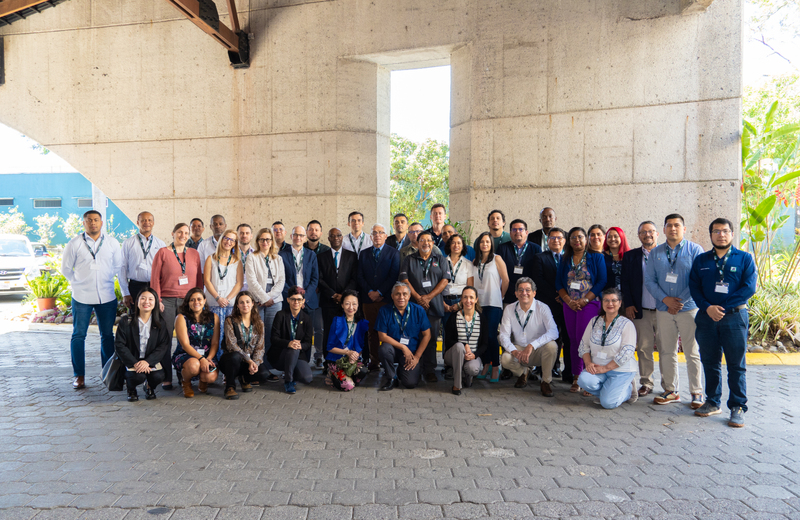Experts discussed non-detrimental findings for timber species listed in CITES Appendix II
15 April 2025, San José
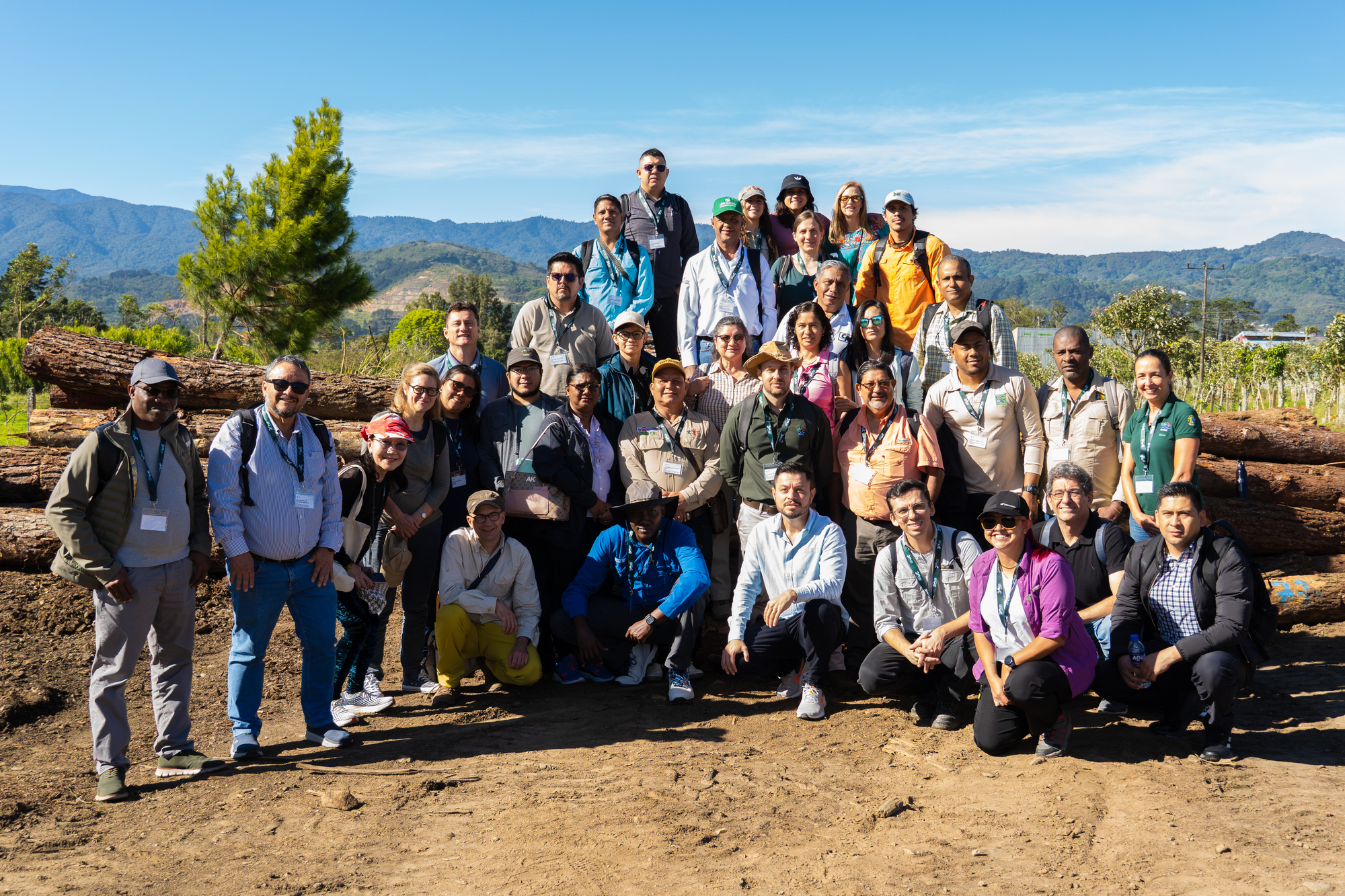
Participants of the workshop to discuss non-detrimental findings for timber species listed in CITES Appendix II in Costa Rica. Photo: Didier Fernandez
From April 1–3, 2025, experts from ten Latin American countries gathered at the Radisson Hotel in San José for a regional workshop focused on the development of non-detriment findings (NDFs) for CITES-listed timber species. The event, held under the framework of the Convention on International Trade in Endangered Species of Wild Fauna and Flora (CITES), marked a key milestone in promoting the sustainable management and sustainable trade of tropical timber across the region.
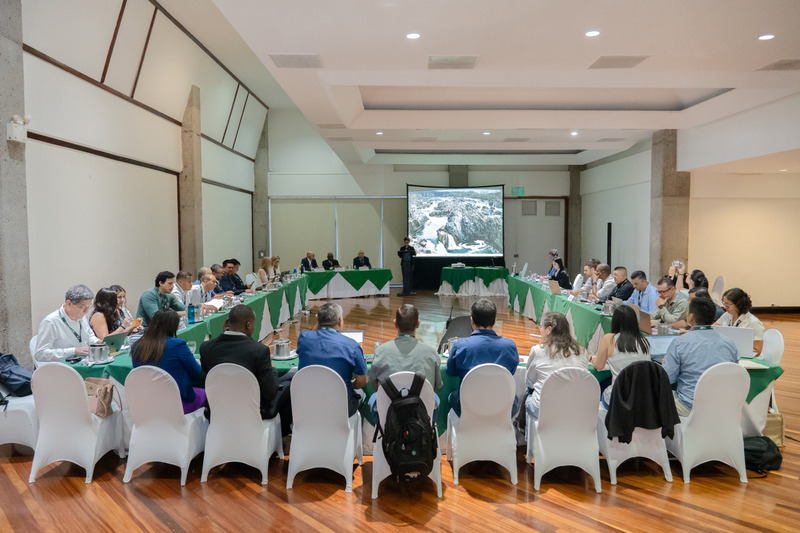
A key forum for sustainable forestry
Organized by the International Tropical Timber Organization (ITTO) and the Costa Rican Chamber of Forestry, Timber and Industry (CFMI), the workshop provided targeted training for the Scientific and Management Authorities of participating countries. Its goal: to support the effective implementation of the 9-step methodology for developing NDFs—scientific assessments that ensure timber harvesting does not threaten the survival of species or degrade forest ecosystems.
Participants included representatives from Brazil, Colombia, Costa Rica, Ecuador, Guatemala, Guyana, Honduras, Mexico, Panama, and Peru, alongside European experts and key stakeholders from the global forest industry.
“This event is a unique opportunity to strengthen cooperation between Latin American countries, the private sector, and scientific institutions in order to move towards more responsible and sustainable timber harvesting,” said Dr. Mohammed Nurudeen Iddrisu, Director of Trade and Industry of the International Tropical Timber Organization (ITTO).
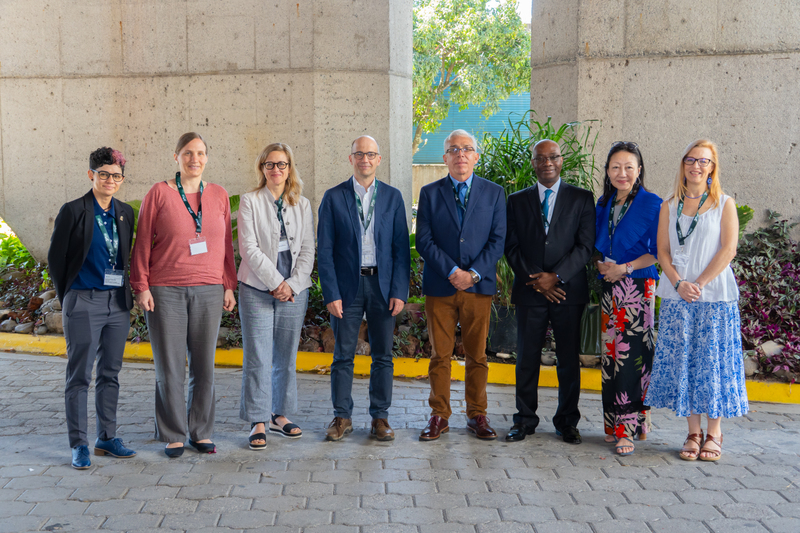
Spotlight on timber species sustainability
The workshop centered on the use of NDFs to regulate sustainable harvest levels of key timber species, particularly those recently listed in CITES Appendix II, such as Ipê (Handroanthus spp., Roseodendron spp., and Tabebuia spp.) and Cumarú (Dipteryx spp.). These listings have sparked significant discussion regarding the regulation of international trade in high-value tropical hardwoods and the need for science-based conservation strategies.
To bring theory into practice, Dipteryx was used as a case study to apply the NDF methodology. A special conference on April 4 expanded the discussion to market and trade dynamics, with active participation from the private sector, government institutions and several international actors.
“This regional workshop not only underscores the importance of international cooperation in the responsible management of forest resources, but also reinforces Costa Rica's commitment to the sustainability and preservation of our biodiversity,” said Jorge Mario Rodríguez Zúñiga, Costa Rica's Vice-Minister of the Environment.
“Through this event, we are advancing the implementation of practices that ensure timber harvesting aligns with the rhythms of nature—protecting our species and ecosystems for future generations.”
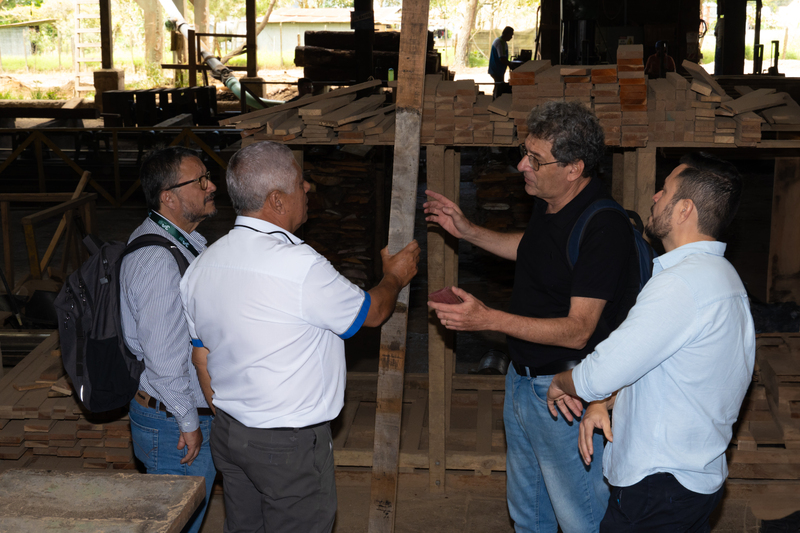
Bridging science, policy, and trade
The event also served as a platform to discuss timber trade and export regulations, particularly under CITES regulations. With participation from governments, scientists, and private sector representatives, the workshop fostered dialogue aimed at developing holistic approaches to species conservation and the economic resilience of timber-producing countries.
“Sustainable trade in tropical timber depends on robust science, best practices in markets, and strong collaboration,” said Sheam Satkuru, ITTO Executive Director. This regional workshop exemplifies the kind of practical cooperation that is urgently needed to ensure CITES-listed timber species are not only protected but can also contribute to the livelihoods of communities who depend on forests.
“ITTO is proud to support this effort to build regional capacity, enhance transparency, and strengthen the science-policy-markets interface for sustainable forest management in Latin America whilst enhancing public-private collaboration, all of which are critical”, she added.
The workshop’s collaborative spirit reflects a growing regional commitment to harmonize conservation goals with sustainable trade practices. As countries work together to strengthen technical capacity and align on CITES implementation, the role of evidence-based decision-making and cross-sectoral cooperation becomes ever more vital.
“The CFMI is honoured to provide logistical support for this event and proud that Costa Rica has been chosen to host this workshop due to its strategic location, its highly trained human resources in forestry management, and its leadership in environmental sustainability,” said Natalia Chacón Cid, Executive Director of the Chamber of Forestry, Timber and Industry (CFMI).
Through this workshop, ITTO member countries will reinforce their positions as a global reference in the responsible management of their countries’ forest resources.
